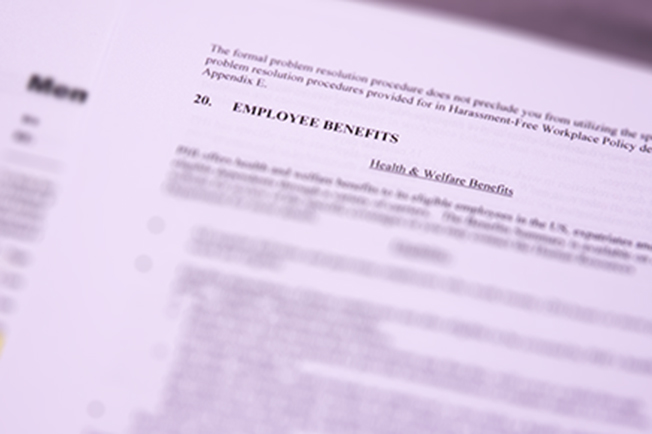Congratulations! You’ve got a new corporate job. Your HR representative hands you a big envelope detailing your salary and all these benefits—401K, vacation, health insurance etc. And the questions start to pop up: Mom, do I need life insurance? What’s an employer contribution? I don’t know what any of this means!
It’s important to understand your benefits and have the tools to take full advantage of them. If used correctly, your benefits can add approximately $10,000 value to your compensation package. (Note: I have no idea if this is a proven fact, but this is just something my parents and my first HR rep told me. They are all ‘money people,’ so I believe them.)
Here are a few things to look at a little more carefully while choosing your benefits:
1. Health Insurance
If you have any benefits, you probably have health insurance. Usually you have a couple options: plans where you pay more upfront and have lower out-of-pocket costs later, and plans where you play a lower premium but have to save that money for the “big bill” later. Other important things to take a look at: your co-pay, deductible, and if there is an annual or lifetime maximum. One time, an employer offered me health insurance and, upon further investigation, I discovered there was an annual maximum of $1,000. My car insurance was offering me better medical coverage! I looked to purchase insurance outside my benefits plan because I knew that in any sort of serious situation, that medical insurance wasn’t going to help me.
2. Employer Match/401k
Employer-matching contributions are another great benefit: your employers will match your 401K contributions up to a certain percentage of your salary (usually about 5% to start out). It’s a great way to increase your savings quickly! One important note: if you leave your company before you are considered “vested,” you will lose all your employer contributions. (Total bummer, I know!)
At my first company, employees didn’t become vested until two years in, and I left after a year and a half. But my current company’s 401K vests immediately. If you do happen to find new employment, ask HR what would happen to your vested balance if you came back to the previous company. I found out before I left that if I went back to my old company within two years of leaving, I would get my employer contributions back. Pretty cool research to have in my back pocket!
3. Life & Disability Insurance
Life insurance is another common benefit. Generally, if offered, your employer will pay for the amount of one year’s salary, while giving you the option to purchase additional coverage. You also get to designate this money to your loved ones, so be prepared with all your beneficiaries’ social security numbers ahead of time.
Many companies also include short-term disability and long-term disability insurance options. Depending on your insurance, this may extend to illness or injury while not on the job (pneumonia, hospitizalion, etc.). That’s why you want it to pay extra for it, even though workman’s compensation would cover injuries on the job. Even if you are working a desk job, if you can make an affordable monthly contribution to earn these benefits, I would recommend you take it. Accidents happen everywhere and there is nothing more taxing for you or your family than a career-ending injury. Some examples of career-ending injuries include accidents in company vehicles, slipping on ice, and falling down stairs. Again, all very unlikely, but could lead to severe injury that would keep you from working.
You should also figure out when your disability rolls from short term to long term. An employer cannot replace you until you are considered to be on “long-term disability,” which can be anywhere from 3-6 months. If you like your job, you would hopefully recover during the short-term leave, before you get rolled to long-term and find yourself out of a job.
Finally, perhaps the most important thing about corporate benefits is to feel empowered to ask questions. Many corporations provide benefits hotlines that can answer your questions, get you specific details on your medical plan, and just help it all make sense! If you don’t have a benefits hotline, your HR rep will be able to talk to you about any questions you have.
